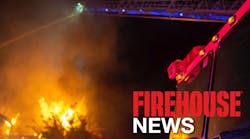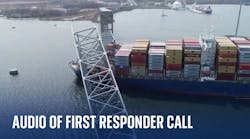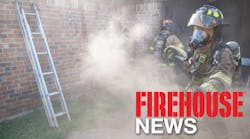Richmond serves as Virginia's Capital and like most other communities has been heavily engaged in emergency preparedness. Even before Robert Creecy became Richmond's Fire Chief, he was aware of the many commercial wireless services that could enhance their emergency preparedness and response. Upon an initial assessment of services being used, it was quickly learned that there was a broad range of commercial wireless services being used throughout Richmond government and under no coordinated rhyme or reason. A review of services and research into what other communities were doing identified Nextel as being uniquely suited to meet Richmond's needs.
Chief Robert Creecy and Emergency Manager Ben Johnson met with the Honorable Mayor Doug Wilder and CAO Harrell and proposed that by consolidating their services with Nextel they would improve communications between public safety and key city officials. This new level of service through Nextel would provide features which included wireless phone service, Direct Connect and Direct Talk. Direct Connect provides a network push-to-talk walkie talkie feature that functions as a parallel 800 MHz trunked radio. Direct Talk allows direct (talkaround) walkie-talkie feature when the network is not available. An important note to both of these services is that they are not dependent on the public telephone switch as most other commercial wireless services do.
When Chief Creecy was asked why the Richmond Department of Fire and Emergency Services (RFES) identified the need to change, he first noted, "Command officers were having a difficult time performing the necessary email activity that was required during their daily routine." Another identified need was that fire companies could not communicate in any other way than the 800 MHz radio system - no redundancy. RFES was also using a conglomeration of cell phones, Blackberries, interactive pagers, alphanumeric pagers - none of which were part of a comprehensive plan or account.
Why Now?
Chief Creecy points out, "The timing was right for this opportunity." There was agreement between the Fire Chief, Emergency Manager, Mayor, CAO and their Department of Information Technology (DIT). They had already been discussing emergency management and planning issues, and this solution filled a lot of voids. Chief Creecy had a keen desire to gain some measure of order and control over the multitude of accounts and devices in use with some potential device consolidation within the Fire Department. The Mayor, CAO, Emergency Manager and their key staff were equipped with Blackberry devices in this process as well.
Today, the Nextel system includes approximately 30 Blackberry devices for executive, command leadership and key city administration. Fire personnel, fire companies and field staff now operate with Nextel phones to provide dramatically expanded logistical capabilities.
What's Different today?
Today all of Richmond Fire's devices are bundled into one government account which makes tracking usage and effectiveness much easier. Chief Creecy notes that they are in the process of institutionalizing these alternative communications devices into a uniform and comprehensive communication plan for day-to-day operations as well as a redundant/parallel form of crisis management during system failure.
Today, every fire company is equipped with a phone sub-receipted to the captain. This phone is handed off at relief like the assigned portable 800 MHz radio. Nextels have been issued to all RFES staff officers in Administration, Training and Prevention and are used as a daily business tool. Battalion and Deputy Chiefs have Nextel Blackberry phones assigned personally 24/7/365 to stay informed while on and off duty and within reach in the event of a local emergency. Fire companies and logistical support use the Nextels to conduct the routine daily business as well as to assist citizens during emergencies.
"Simple questions and issues get handled very quickly."
What Impact Has Taken Place Since Implementation?
First, there was an immediate reduction in radio traffic over the 800 MHz radio system as it naturally migrated over the Nextels, most commonly through the use of Direct Connect. Additionally, key personnel are much more available and accessible (literally at the click of a button) to conduct routine and emergency business. Battalion Commanders are better informed on an ongoing basis and do not face the backlog of emails when returning from daily station rounds as well as days off and long breaks.
The issue of too many devices on not enough belts and too many unmanaged accounts drove the decision to consolidate into fewer multi-function devices. Ultimately this promoted better efficiency and effectiveness in running the day-to-day operations.
Are Blackberries Used For Emergency Preparedness?
The Emergency Preparedness and Management initiative drove the decision to select Nextel as the platform due to its unique features, the reliability and priority to public safety agencies when normal cell systems often fail, and especially the redundant capability of Direct Talk as a fail-safe feature.
Are You Using The Direct Connect Talk Groups?
So far there has been very limited use of talk groups, but there are efforts underway in this next phase of implementation to develop a matrix of talk groups and will be used when we conduct future drills in order to exercise the plan.
What About Interoperability?
Interoperability is achieved between Richmond Fire, Emergency Management and City Administration. The service is versatile such that the opportunity is present to bring other agencies in as the first level of this move is complete.
What Suggestions Or Insights?
Redundant communication was central to our decision for emergency management.
The parallel system of Direct Connect® was important.
The off-network Direct Talk feature was an added value to "doomsday" planning.
The consolidation of other separate devices into Blackberries, which do not have Direct Talk required compromise and necessary planning. Our ongoing plan is to track Nextel's technology development and replace existing Blackberries with devices that we anticipate will have the Direct Talk feature added in as they become available. As the Nextel footprint expands within City Government, these current devices can be re-issued to other agencies with lower communication priorities.
The most important result from this move was the consolidation of devices/accounts and achievement of redundant communication vectors.
Our biggest problem has been with the pre-programming of existing contacts and numbers as well as getting the talk groups consistent in every device.
An experience of a Blackberry failure has already indicated the need to have spare devices on hand to facilitate an immediate replacement because we learned that the SIM cards are not fully interchangeable between Nextel phones and Blackberries.
Is There Any Interest In Interfacing Nextel And Radio System
There is definitely an interest to interface Nextel with the radio system. This initiative would follow the initial migration to Nextel and after our personnel become more comfortable with the technology, as this has been something very new to a traditional fire department.





